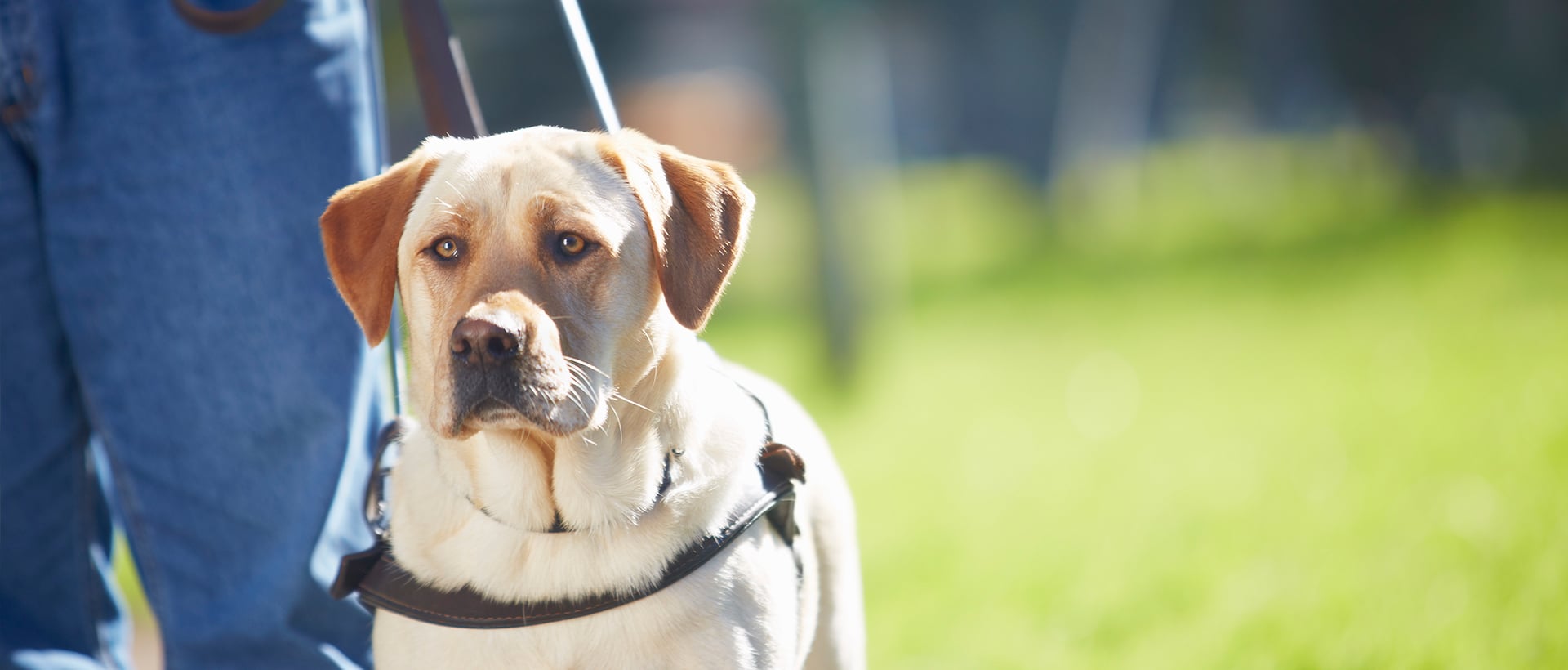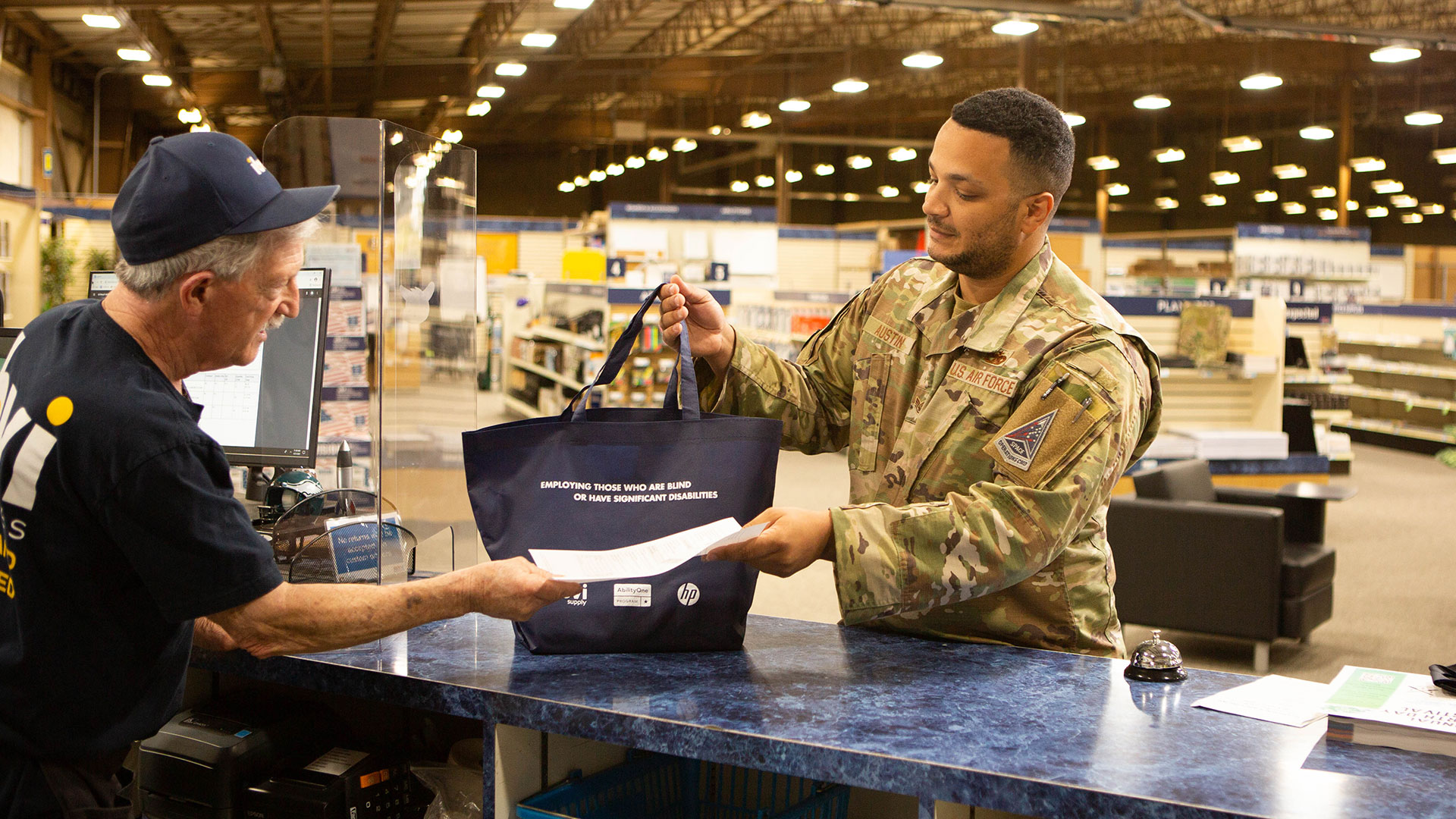Dan Bailey turns plenty of heads in airports as he walks through the crowded corridors with Phelps, his guide dog. In fact, any blind person using a service dog is likely to get a lot of attention, if for no other reason than people love dogs!
But these are no ordinary dogs — as any of the blind professionals at IB Milwaukee will tell you — they’ve had years of training and need different treatment from day to day, too.
We recently blogged about what happens to guide dogs when they retire, and promised it was only the start of our efforts to teach the public about service dogs and other ways that visually impaired people navigate their everyday lives. In this post, we’ll take a look at some etiquette dos and don’ts sighted people can use when interacting with guide dogs.
DON’T try to get a guide dog’s attention when his harness is on. Yes, they’re adorable — but remember that distracting a working service dog creates the same dangers that grabbing the steering wheel away from a driver would. Wait until the harness is off to pet and play!
DO keep other pets on a leash and close to you when you’re near a guide dog team. Dogs will be dogs, and even the best-trained service dog may want to play with yours — so it’s best just to walk on by.
DON’T forget that these dogs are special. When their harnesses are on, they’re hard at work. Don’t pet them or feed them treats unless their handlers give you specific permission to do so.
DO trust the guide dog. If you’re in a nearby car when a team arrives at an intersection, give the dog the benefit of the doubt that they’ll be able to get their charge across the street without incident. Honking or yelling out the window will do nothing but distract!
DON’T interfere when a guide dog’s handler is giving a correction. Service dogs are highly trained, but sometimes they make mistakes! Corrections might seem abrupt and startle a guide dog, but you can rest assured that the handler has also been properly trained in giving corrections and that he or she would never do anything to hurt the dog.
DO ask questions If you’re curious about a handler’s relationship with her guide dog, most people will be happy to answer your questions — we at IB Milwaukee aren’t the only ones hoping to teach the world more about living with blindness. Just be sure to ask your questions when the handler isn’t busy trying to get somewhere with her guide dog.
What other questions do you have about guide dogs? And have you ever witnessed other dos or don’ts about interacting with them?
Share them here in the comments, or leave a comment on our Facebook page.


